Australia’s Top Cardinal Was Convicted Of Sex Abuse, The Australian Press Can’t Report It
A particularly appalling case of press censorship from Australia.

Cardinal George Pell, formerly Australia’s top Catholic official and a top Vatican official who was close to Pope Francis and his predecessors was recently convicted of abusing two boys in the 1990s, but the Australian press can’t report it:
The front page of Thursday’s Herald Sun newspaper in Melbourne, capital of the Australian state of Victoria, is dominated by a single word in huge white type, all caps, on a black background: CENSORED.
“The world is reading a very important story that is relevant to Victorians,” reads the subhead. “The Herald Sun is prevented from publishing details of this significant news. But trust us. It’s a story you deserve to read.”
The story is, indeed, a blockbuster, especially for Australian citizens: Cardinal George Pell, sometimes described as the third-most-powerful Vatican official, was convicted of all charges that he sexually molested two choirboys in Australia in the late 1990s. (Pell, 77, has been the Vatican’s chief financial officer in recent years; he earlier was the archbishop of Sydney and of Melbourne.)
But because of a court-issued gag order intended to preserve impartiality, the news media has been forbidden from publishing news in Australia on the details of the Melbourne trial, and now on the unanimous decision of the jury.
Suppression orders — almost unheard of in the United States — are fairly common in Australia. But they are true anachronisms in the digital age, where information, thankfully, can’t be shut up in a padlocked barn.
In the meantime, publications worldwide are treading carefully, as they try to avoid legal trouble.
One of the first to publish a story on the conviction was the Daily Beast, a major news site based in New York City.
Editor in chief Noah Shachtman told me that he waded carefully into the dangerous legal waters.
“We understood there could be legal, and even criminal, consequences if we ran this story,” said. “But ultimately, this was an easy call. You’ve got a top Vatican official convicted of a horrific crime. That’s major, major news. The public deserves to know about it.”
Shachtman said the Daily Beast did its best to honor the suppression order, consulting with attorneys here and in Australia, and even “geo-blocking” the article so that it would be harder to access in Australia, and keeping headlines “relatively neutral.”
The Associated Press reported this week that Pell had been removed from Pope Francis’s informal cabinet, and some U.S. news organizations have published stories on the gag order itself.
That the Australian justice system takes enforcement seriously is clear. Last spring, an Australian state court employee was fired merely for looking up details of charges facing Cardinal Pell in a restricted computer system, according to the Catholic publication Crux.
The suppression order is remaining in place, reportedly because there is another case against Pell, on separate charges, making its way through the courts.
The extent to which this is being censored in the Australian media cannot be exaggerated. To put this conviction into perspective, the equivalent of this would be if the Cardinal Archbishop of a city such as New York, Chicago, Washington, D.C., or Los Angeles were convicted of child abuse and the American news media were prevented from covering it. A quick review on my part of major Australian news sites reveals absolutely no mention of the conviction, and no indication that the case had even been covered while it was ongoing. The only thing that comes close are reports by the Australian news site ABC and the Sydney Morning Herald about Pope Francis removing Pell from a Vatican panel that were published yesterday. Neither report makes reference to the reasons why Pell was removed or the fact that he had recently been convicted. The censorship order even appears to be extended to international media with The Guardian and The New York Times both reporting on Pell’s dismissal from the Vatican panel while making only passing reference to the legal proceedings against Pell or the fact that he was recently convicted.
As Margaret Sullivan goes on to argue in the piece quoted above, this is utterly offensive what a free press is supposed to be about:
The secrecy surrounding the court case — and now the verdict — is offensive. That’s especially so because it echoes the secrecy that has always been so appalling a part of widespread sexual abuse by priests.
That has changed a great deal in recent years — in part because of the Boston Globe’s Pulitzer Prize-winning investigation in 2002 that broke open a global scandal and was the subject of the Oscar-winning film “Spotlight.” (Current Washington Post Executive Editor Martin Baron was executive editor at the Globe at that time.)
But clearly, it hasn’t changed entirely. And the news media shouldn’t be forced to be a part of keeping these destructive secrets.
Steven Spaner, Australia coordinator from the Survivors Network of Those Abused by Priests told the Daily Beast he felt frustrated and left “in the dark” because of the suppression of news about Pell.
“It’s hard to know if there are any shenanigans going on — things the church did that are illegal themselves,” he said. “There is always suspicion when you don’t know what is going on.”
Spaner is right. The Catholic Church’s culture of denial and its stonewalling has been disgraceful.
Journalists — whose core mission is truth-telling — shouldn’t be forced to be a party to it.
Pope Francis told journalists earlier this year that he would talk about Pell only after the judicial process was complete. America magazine reported that Pell, who has always insisted on this innocence, will appeal.
And so the silence continues.
A front-page editorial in the Sydney-based Daily Telegraph is challenging the suppression order, calling it “an archaic curb on freedom of the press in the current digitally connected world.”
And, the editors said, “We’ve taken steps to fight the ban.”
They’re clearly right to push back, and their efforts deserve the support of press-rights advocates everywhere.
There are many nations that regulate the extent to which the media can report on ongoing criminal cases, with many of nations that even share the English Common Law roots with the United States, having laws that we would consider offensive that restrict the ability of the press to report on ongoing criminal cases. That being said, the idea that this is preventing them from even reporting on Pell’s conviction — apparently because there are additional charges against him — is absurd and offensive. The fact that it is even preventing news organizations in the United States from reporting on the conviction is utterly absurd. Journalists ought to be fighting against things like this instead of meekly accepting them.

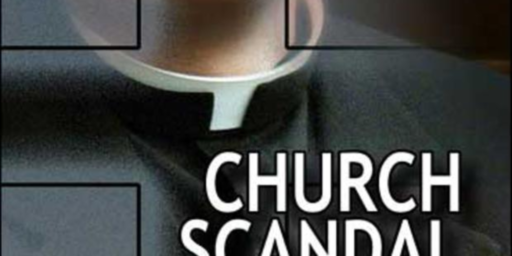
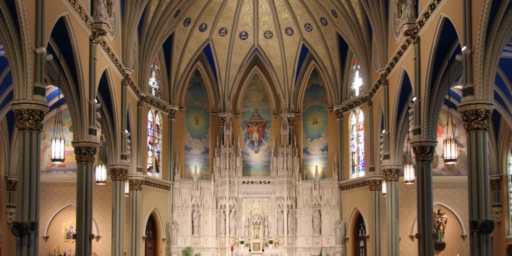
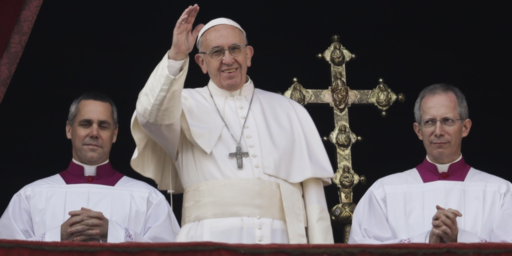
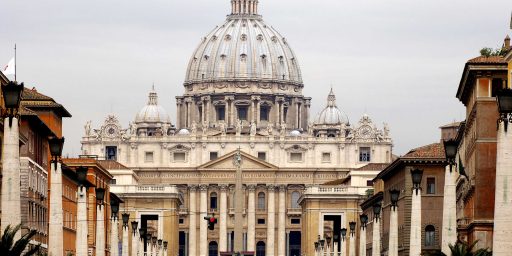
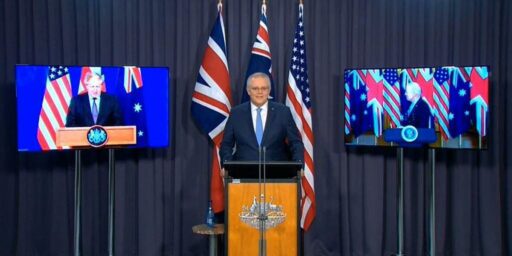
I have to assume that is because they have operations in Australia that could be held responsible for what the US parent company did over here. Which is still plenty absurd. Kinda like saying Australian court rulings are preeminent over the US Constitution here.
While I agree with everything Doug wrote, I think it’s mostly shocking because we Americans assume Australia has the same Western ideals as us. We wouldn’t bat an eye if this was China or Saudi Arabia, in fact we’d probably never hear about it in the first place.
Is it permissible for Australian reporters to report on what foreign reporters are reporting?
This is bonkers absurdly stupid.
Geo-blocking? Okay, I could understand if it were China (don’t agree, but understand), but Australia?!?
Quite likely, shortly after Doug posted this, an American or perhaps an Aussie student studying US politics, stumbled across this post and forwarded it to hundreds of his facebook friends.
Sorry Doug, it has been nice to know you virtually. I hear that those Outback prisons are pretty rank. :).
I fail to see any logic to keeping any part of what is public record secret.
I hear that those Outback prisons are pretty rank.
He will be lucky to get there alive!